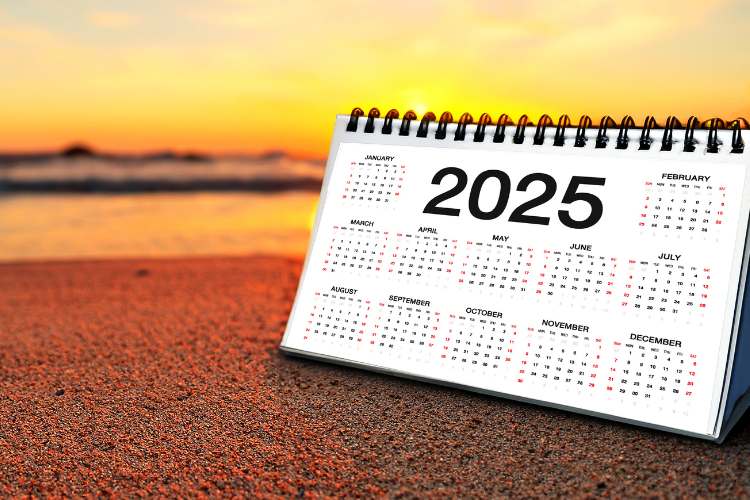
Kamala Harris: Evaluating Her Politics and Leadership
Reviewing Kamala Harris: Evaluating Her Politics and Leadership
Kamala Harris, the first female and first Black Vice President of The United States, now stands as one of America’s premier political performers. For a woman who has broken down so many walls, the ascent to being second in command of The United States is simply historic and amazing. But Harris has also seen plenty of pushback on both the left and the right as a result of her place in Democratic politics writ large (her political legacy through 2021 was based primarily around San Francisco — more than two decades ago) prior to entering statewide offices.
This article takes her policies to task and examines how she governs in such a high-profile role. We will dive deep into her history as a prosecutor and vice president while also grappling with the criticisms she receives from all sides of the political spectrum.
Early Career: The Prosecutor
Kamala Harris, who began her career in law enforcement, was a prosecutor in Alameda County and later the District Attorney of San Francisco. In 2011, she became the first woman and person of color to serve as Attorney General of California. She launched her ascent as an ambitious prosecutor but subsequently paid a price for being tough on crime.
Harris has critics who say her record as a prosecutor does not square with the progressive image she is now projecting. She had prosecuted cases as a District Attorney and then later, while she was in the office of an Attorney General, where her staff used to seek maximum offenses for minor offenses, especially in cases related to Marijuana. Marijuana legalization is a growing concern for Democrats, but Kamala Harris’ hesitance in the past to get behind these reforms has also raised questions about her trustworthiness and confidence in progress.
Harris was also slammed for keeping a man on death row when he might have been exonerated by DNA evidence, and her office defended the convictions of people who were later found to be innocent due to misconduct in the prosecutor’s office. She was criticized for her implementation of draconian truancy laws in California, penalizing the parents of truant children, especially in low-income communities.
Those who support Kamala Harris, however, say she has evolved into a much more progressive leader than when the Brown video was recorded. They cite her subsequent actions, such as going after mass incarceration, police reform, and systemic racism, to prove that she was capable of change and seeking justice.
Senate career: Concentration on criminal justice reform and health care

Kamala Harris was elected to the U.S. Senate from California in 2017, which increased her national prominence. Harris was frequently in the headlines during her time in the Senate, known for asking pointed questions at high-profile hearings conducted by committees including the Judiciary, Homeland Security, and Intelligence that have investigated other potential Russian interference into politics or inquiries related to issues such as gun control proposals.
As a Senator, Kamala Harris advocated for issues like criminal justice reform, health care, and immigration. In that regard, her decision to co-sponsor the First Step Act was a potentially meaningful move toward addressing mass incarceration. Harris has since called for federal legalization of Marijuana, a change from her prior stances as a prosecutor.
But her record in the Senate is far from progressive enough for some on the left. She has backed major reforms, but her critics from the left often say Kamala Harris had taken centrist stands on critical issues. During her unsuccessful 2020 presidential campaign, Harris struggled to offer a concrete position on Medicare for All. Though she initially co-sponsored a single-payer healthcare system, she backed away from the idea to support something more moderate that would preserve private insurance.
The criticisms extend to the perception that Kamala Harris is too politically calculated — mercurial in her positions, changing them conveniently as they become more or less convenient for political reasons instead of out of genuine belief.
2020 Presidential Campaign: A Struggle for Identity and Messaging

Kamala Harris has entered the 2020 Democratic presidential nomination as one of its top prospects. As evidence of her seriousness as a presidential candidate, look at the 20,000-plus who attended her campaign kickoff in Oakland. But her operation almost immediately ran into hurdles, including in defining a political persona for the senator.
Harris struggled to create a definitive lane for herself in what turned out to be a crowded field. Sanders and Warren were able to bring the left together, with Biden taking over as champion of the moderate lane. Somehow, Harris managed to cross the line between what both wings of the party wanted, and she ended up with a bunch of voters who had yet to learn where she really stood.
A highlight of her campaign was when she confronted Biden on stage during a debate for opposing federally mandated busing in the 1970s to desegregate schools. Kamala Harris’ withering attack on Biden drew much attention, especially from African American voters — yet her failure to build upon that momentum revealed deeper problems in her campaign is one quick example.
Worse yet, her campaign imploded with a stream of reports about internal discord among the staff and no coherent strategy. Eventually, Harris suspended her campaign on December 3 because of a lack of money — more than two months before the Iowa caucuses.
Though her presidential effort faced headwinds, it also raised Sen. Kamal Harris’s national profile. It left her well-positioned to be considered for Biden’s running mate as a strong prospect from the Democratic hopeful grid.
Vice Presidency: A Familiarly Attacked, Strange New Role
Joe Biden shattered a 232-year-old barrier by selecting Kamala Harris as his running mate on August 11, 2020. Kamala Harris became the first woman of color in history selected to be on a major party’s presidential ticket, and her choice was widely revered and evocative of the Democratic Party’s supposed promise for diversity.
Harris has grappled with how she would have a footprint on the Biden administration since taking office as Vice President. The Vice Presidency has traditionally been seen as a symbolic role. However, Biden assigned Harris some meaty policy areas to oversee, such as leading the push for tackling “root causes” of migration in Central America and taking on voting rights, humanizing at least one other important area — fighting COVID-19 vaccine hesitancy.
Yet she has attracted controversy in these very same areas. Harris faced criticism for her approach to the migration crisis, especially when she said, “Do not come” during a visit to Guatemala. This created outrage among many progressives, who argued that Obama’s remark was not as gentle and ‘humane’ as the administration had proposed.
While she raised the profile of the issue, federal voting rights legislation has languished in Congress, and others wonder whether her efforts were effective at creating a coalition to reach that elusive package.
Harris has also faced dismal approval ratings, which some have attributed to the challenge of juggling her duties as Vice President, especially in an administration that is grappling with everything from inflation to political divide. Her critics say she has yet to prove herself as a leader with the ability and resolve to act boldly. However, her backers counter that Gov. Mills is methodically charting an incredibly intricate political course, skipping very carefully from stone to stone (or checkpoint?
Kamala Harris’ Next Career Move

With Vice President Kamala Harris reaching the midway point of her first term, big unanswered questions loom around her future political ambitions. Some publicly wonder if Biden won’t run for re-election that she may very well be the Democratic Party’s de facto presidential standard-bearer in 2024
Yet Harris is hardly on a glide path to the presidency. She must first overcome low approval ratings and criticism from progressives and moderates alike within the Democratic Party. Coming right out of the gates, Harris will have to address a wide range of concerns from her critics, and she must further clarify where she stands on specific policies if she wants stronger support. All while trying not to lose authority in the face of rising obstacles.
A primary area in which Harris could theoretically reinvent her leadership style is working with coalitions. Over the years, she’s demonstrated a willingness to listen to people and grow on crucial issues. Suppose she is able to assemble the detritus of what remains of a fragmented Democratic Party and build momentum among both progressives and centrists. In that case, she would be one potentially unified voice in American politics.
Kamala Harris will further have to negotiate the unprecedented (or, in her case, precedent-setting) nature of being a woman and also racially non-white.) Racism and sexism have plagued her throughout both of those careers, experiences that will continue to inform whatever political journey she takes next. How she navigates these challenges and how effectively she leverages her platform to fight for those historically oppressed will go a long way in determining the lens through which history views her.
Conclusion: A Complex Legacy
Kamala Harris is a love-or-hate figure. Her ascendance to the Vice Presidency is a huge milestone in American history, but her legislative record and approach have been critically dissected as damaging or concerning. While she has made notable progress on issues such as criminal justice reform and health care, her critics say that she needs to do more to shore up her positions and use the full extent of her power as Vice President.
Such a piece will continue to be subjected to the harsh light of political and media scrutiny, regardless of which way politics moves forward. Whether she is ultimately able to overcome the controversy surrounding her and emerge as a game-changing figure in American politics remains uncertain, but it is already certain that Ocasio-Cortez has had an undeniable impact on our national conversation — one whose reverberations have only just begun.



